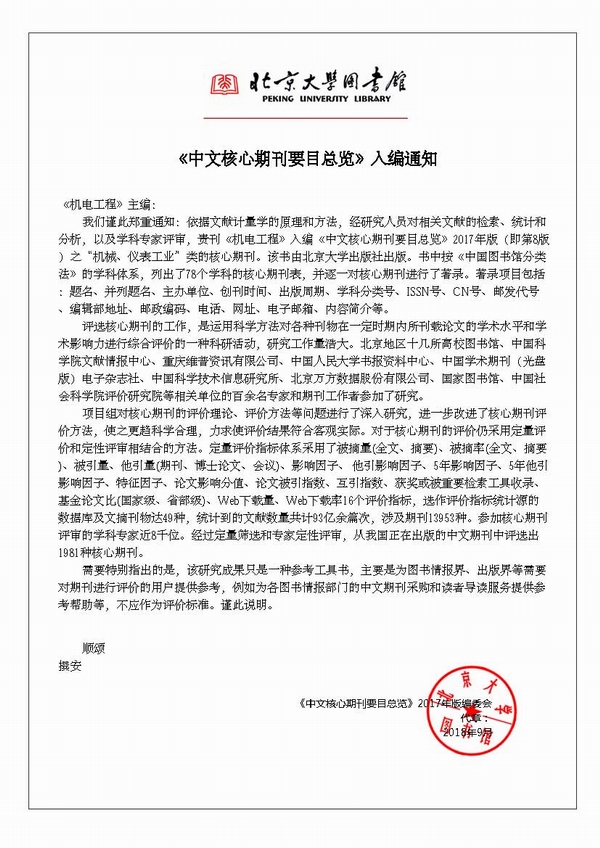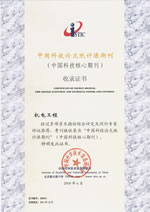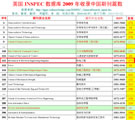
Founded in 1971 >
Chinese Sci-tech Core Periodicals >
British Science Abstracts (SA, INSPEC) Indexed Journals >
United States, Cambridge Scientific Abstract: Technology (CSA: T) Indexed Journals >
United States, Ulrich's Periodicals Directory(UPD)Indexed Journals >
United States, Cambridge Scientific Abstract: Natural Science (CSA: NS) Indexed Journals >
Poland ,Index of Copernicus(IC) Indexed Journals >
International Standard Serial Number:
ISSN 1001-4551
Sponsor:
Zhejiang University;
Zhejiang Machinery and Electrical Group
Edited by:
Editorial of Journal of Mechanical & Electrical Engineering
Chief Editor:
ZHAO Qun
Vice Chief Editor:
TANG ren-zhong,
LUO Xiang-yang
Tel:
86-571-87041360,87239525
Fax:
86-571-87239571
Add:
No.9 Gaoguannong,Daxue Road,Hangzhou,China
P.C:
310009
E-mail:
meem_contribute@163.com
Abstract: Aiming at the problem that traditional proportional integral (PI) control was difficult to select parameters with better control performance, taking the air rudder servo system as the research object, a control method of reinforcement learning-PI based on genetic algorithm optimization was proposed. Firstly, the mathematical model of the air rudder servo system was established. Then, the initial parameters of PI controller were optimized by genetic algorithm. The current PI controller was adjusted in real time using the deep deterministic policy gradient(DDPG)algorithm to realize the position command control of the air rudder servo system. Finally, the effect of the method used in the air rudder servo system was verified in Simulink through simulation analysis. The results show that the improved algorithm has certain online stability when the parameters are perturbed. In the case of no load, the required adjustment time is less than that of genetic algorithm - PI, DDPG-PI and traditional PI algorithm, and it is increased by at least 20%. At the same time, in the case of load, the fluctuation amplitude of the improved algorithm is at least 15% better than that of the other three methods compared with the time to return to steady state after the end of load, which proves the effectiveness of the method used in the air rudder servo system.
Key words: servo system; proportional integral(PI) controller; genetic algorithm; deep deterministic policy gradient(DDPG) algorithm; parameter optimization; Simulink








